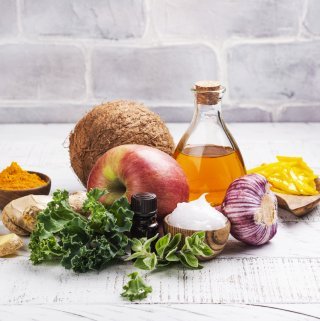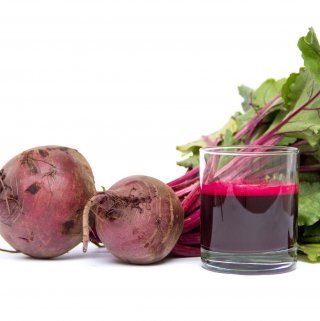Orange juice is a common morning beverage. For some, it may not be as refreshing or popular as the typical morning caffeinated or energy drinks; but it offers so much more in the way of nutritional value.
The fiber or pulp also provides significant health benefits. You may consider adding some of the pulp back into your orange juice to reap more benefits. To get the best benefit from the orange overall, eat it whole or mix it in a smoothie. The fiber in the orange will help you stay full longer.
Oranges and orange juice contain phytochemicals and flavonoids, which have anti-inflammatory and antioxidant properties. How do the phytochemicals and flavonoids in oranges and orange juice benefit you?
Below are some the top health benefits you can get from eating an orange and consuming orange juice on a regular basis:
Boosts Immune Function
Orange juice is high in vitamin C. Vitamin C can also boost your immunity when facing everyday viruses and infections like the common cold and the flu. Vitamin C is an antioxidant that neutralizes the damaging effects of free radicals in the body. Free radicals may lead to chronic conditions such as cancer and heart disease.
Help Prevent Cancer
Orange juice is loaded with antioxidants. Antioxidants have many benefits, they help inhibit the growth of cancerous cells. some specific antioxidants have been linked to slowing tumor growth. If you’re at risk for cancer, regular consumption of orange juice and a balanced diet could be a good alternative.
Improves Digestion
The fiber in oranges help improve the bowel regularity, cure stomach ulcers, prevent stomach bloating, help with diarrhea, constipation, and gas.
Reduces Inflammation
Orange juice also has anti-inflammatory properties. These properties can help improve insulin resistance and reduce the risk of developing diabetes or heart disease.
Improves Circulation
Orange juice is rich in folate. Folate or vitamin B9 helps build red blood cells, which improve your blood circulation and keep the organs oxygenated.
Lowers Blood Pressure
Uncontrolled cholesterol and blood pressure can add stress to the heart, increasing the chances of cardiovascular disease and other cardiac-related instances. Orange juice contains magnesium which helps lower blood pressure and improves blood vessel functionality. Orange juice also contains potassium which also helps lower blood pressure and protects against stroke.
Weight Loss
Oranges and orange juice are both low-calorie and full of nutrients that offer numerous health benefits. Oranges are good for weight loss. The high fiber content keeps you feeling full, aid in digestion and keep you regular.
Oranges are the ideal food to eat because they protect against obesity. Research has shown that obesity can lead to other diseases such as heart disease, cancer, diabetes, high blood pressure and stroke.
As I mentioned at the beginning of this article, if you’re going to make orange juice, consider adding some of the pulp back into the juice.
Support Skin Health
Vitamin C helps keep skin looking great. The vitamin C in both oranges and orange juice are essential to collagen production and may help reduce wrinkles and improve the skin’s overall texture.
Promotes Eye Health
Oranges and orange juice are rich in vitamin A. Vitamin A contains lutein, beta-carotene, and zeaxanthin. These carotenoid compounds can help prevent age-related macular degeneration. Vitamin A also helps improves night vision.
Lowers Blood Sugar Levels
The fiber in oranges can help lower blood sugar levels in people with type 1 diabetes. It can also improve blood sugar, lipids and insulin levels in people with type 2 diabetes. The fiber helps regulate blood sugar by lowering the absorption into the bloodstream.
Promotes Heart Health
Vitamin C, fiber, potassium, and choline inside of oranges are all good for your heart. Potassium is an electrolyte which is essential in regulating the rhythm of your heartbeat. A deficiency in potassium can lead to irregular heartbeat.
Lowers Cholesterol
The fiber in oranges can help lower cholesterol levels. It removes the excess cholesterol compounds in the gut out of the body, through the elimination process.
Commercial Brands vs. Homemade Orange Juice
Commercial manufacturers frequently add chemicals to the juice to replace the vitamins and nutrients lost in pasteurization and other processing. You can find commercial brand orange juice in your local grocery store in the following packaging:
- Frozen
- Bottled
- Canned
- Concentrate
The sugar content of orange juice may vary among manufacturers depending on the types of oranges used and if it’s produced from concentrate. Some brands may add sugar to improve the taste of tart juice. Other brands may use artificial sweeteners that may not affect blood sugar levels.
Ensure that you read the labels with caution. If the orange juice has added sugar, consider whether there are better alternative healthier choices. If you read the label and cannot pronounce the ingredients or need to look them up, buy the oranges and make your own juice.
5 Healthy Reasons to Make Your Own Orange Juice
It is more beneficial for you to make your own orange juice instead of buying commercial brands. Making your own juice, ensures the following:
- It’s fresh and has not been sitting on a shelf or in a cooler for days or even weeks
- You immediately get all of the nutritional value and benefits
- It contains no additives, preservatives or other chemicals
- Your juice is free from pesticides (if you are able to buy organic oranges)
- Freshly squeezed homemade orange juice tastes so much better and is fresher than store-bought brands
Final Thoughts
Drinking fresh squeezed orange juice is the next best thing to eating the orange, minus the fiber. When you make your own orange juice, you know that it is 100% natural and is not loaded with preservatives, additives, and sugar.
A glass of orange juice can contain anywhere from 21 – 25 grams of sugar, just so you know. If you are concerned about the sugar content or diabetic, consider diluting your juice with water 50/50.
As always, consult with your doctor or physician if you have questions or concerns.
If you found this article helpful, please share and don’t forget to leave a comment below.




Leave a Reply